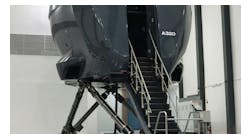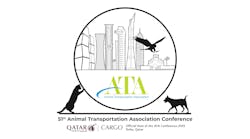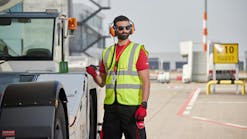Facing the shortage of MRO specialists: new technicians in just three years and other decisive actions to be made
For quite a while now the global MRO industry has been generating an extraordinarily high demand for qualified specialists. In turn, the prospects for talent in the field have reached new heights placing aircraft mechanics on the list of top 200 most desired careers and winning them the 10th position on the top 20 High-Paying Blue-Collar Jobs. However, despite the needs and financial resources available, the number of professionals on the market is still insufficient with only as few as 2500-3000 new aircraft mechanics welcomed to the industry each year. Obviously, there’s an unarguable need for firm action, but what kind of action?
There are multiple colleges and even universities offering diverse courses in aircraft technical support. However, due to the lack of practical training in EASA Part 145 organizations, in many cases the graduates of unspecialized training institutions fail to find a suitable position straight after completing their studies. And even once they do find an employer, the MRO provider has to invest additional resources in order to bring the newbies’ practical base to the required standard. All in all, the period of training a new specialist (i.e. until the receipt of a licence) may stretch to 8 years, including the theoretical part, 3-year-long practice and other procedures. The existing preparation according to EASA Part 147 (Private School) may cut the term by up to 5 years, yet the period is still too long to catch up with the pace of the current industry growth.
“During the last 4-5 years’ time there have been more than 2000 new Boeing 737s alone delivered worldwide, not to mention Airbus, other Boeing family aircraft or other manufacturers’ machines. It is only natural that the actual yearly demand for specialists is currently double the amount of professionals trained at the moment. Moreover, one must take into account the fact that there is not only the increasing need for new aircraft but also the decreasing availability of specialists to deal with, as the current generation of technicians is on the brink of retirement. For example, on average the age of an aircraft technician in Europe at the moment is 40-50 years. Of course, the MRO industry is not sitting around doing nothing. For instance, FL Technics Training is in cooperation with the local higher education institutions providing students with the necessary hands-on practice in hangars whilst still in schools. This allows them to enjoy better employment opportunities upon graduation and pulls their preparation level up to the relevant standard required by potential employers,” shares Kestutis Volungevicius, the Head of Engineering and Training at FL Technics. “However, it is far from enough. There’s an urgent need to take strategic action – for airlines, MROs, the CAA and educational institutions together.“
One of the potential solutions to the problem is to cut the required students’ training time under the condition that it shall have no effect on the quality of preparation. Otherwise, we may end up having to choose from one of the two equally bad alternatives: a sufficient number of technicians with insufficient competence or simply an insufficient number of technicians. Needless to say, none of the options is desirable. In order to avoid the situation, MROs, training organizations and the CAA must jointly work on developing a brand new EASA Part 66 basic training programme which would take 2400 hours and cover the theoretical EASA Part 147 training and the practical EASA Part 145 training portions in training organizations making the time count towards the preparation for receiving the license. This way a new specialist could be prepared in 3 years’ time as well as graduate having developed both theoretical and practical skills relevant to the actual job market.
Another issue is the popularity of the profession itself. Even if the industry follows through with the aforementioned option and develops a new EASA Part 66 intense training program, there is still a question of who will apply for the training. There’s no secret that amongst other aviation-related professions, the one of an aircraft mechanic is less familiar to the general public than the ones of a pilot, an air traffic controller or a cabin crew member. Therefore, the MRO industry should become more transparent, understandable for the public and more active in communicating with the non-aviation community. There is also a great need to engage with secondary (high) schools and be way more active in the life of the local society.
„This is the hunting environment which is well-known when it comes to other professions like lawyers, managers, doctors, pilots, etc. The MRO industry can no longer afford to stay on the sidelines. It should engage in this battle for the youths‘ hearts with full-on force. Certainly, apart from targeted PR campaigns and alike, the industry should take larger and more decisive steps towards promoting the profession and making it more attractive to the talent available. We should understand the thinking of young people. For many of them, receiving a degree is an essential factor while choosing a career. Therefore, EASA Part 147 organizations together with EASA Part 145 providers and national universities should develop joint programs which would allow future specialists to get both – a promising professional future as an aircraft MRO pro with the relevant knowledge and practical skills as well as a Bachelor‘s degree. In either case, the world is changing, and in order for the industry to keep up with the pace, the MRO training segment should also make some decisive actions” comments Kestutis Volungevicius, the Head of Engineering and Training at FL Technics.
About FL Technics Training:
FL Technics Training is a provider of technical training for the aviation industry. The company offers comprehensive training services including basic training and examination, aircraft type training, specialized aviation training as well as online EASA-compliant training. FL Technics Training is a part of a global aircraft maintenance and repair organization (MRO) FL Technics.



